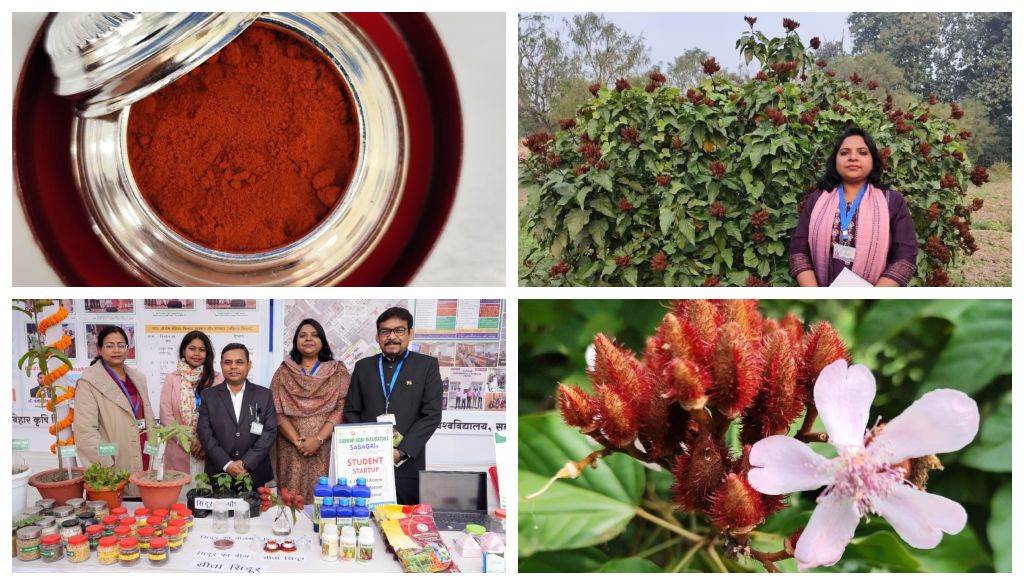Bihar Researchers Develop Natural Sindoor in Breakthrough for Eco-Friendly Cosmetics

Sabour: Scientists at Bihar Agricultural University (BAU), Sabour, have developed a natural alternative to traditional Sindoor, a cosmetic widely used by married Hindu women, in a breakthrough that could help eliminate toxic chemicals from the product.
The innovation, derived from the Bixa Orellana plant—commonly known as Annatto—has been recognized by the Bihar government’s Startup initiative, which has awarded a Rs 10 lakh grant to entrepreneur Reena Singh from Katihar to bring it to market.
The research, led by Dr. A.K. Singh and Dr. V. Shajida Bano under the guidance of BAU Vice-Chancellor Dr. D.R. Singh, aims to replace synthetic Sindoor, which often contains harmful heavy metals such as lead and mercury, with a safer, plant-based alternative.
A safer, sustainable alternative
Annatto, a tropical plant known for its vibrant orange-red pigment, has long been used as a natural food coloring. Now, scientists at BAU Sabour have refined an advanced extraction and stabilization process to create a Sindoor that maintains its color and shelf-life without chemical additives.
“Traditional Sindoor can contain toxic substances linked to health concerns,” said Dr. A.K. Singh, Director of Research at BAU Sabour. “Our approach ensures a natural, non-toxic product while also promoting the agricultural economy.”
The breakthrough is part of a wider push towards sustainable, plant-based alternatives in cosmetics. Researchers say their extraction techniques could pave the way for further applications of bio-pigments in skincare and wellness products.
Boost for farmers and rural economy
Beyond its health benefits, the innovation holds promise for Bihar’s rural economy. With commercial production on the horizon, small-scale farmers cultivating Bixa Orellana could see new demand for their crops. Women-led enterprises and small businesses in Bihar’s agricultural sector are also expected to benefit.
“This is not just a scientific achievement; it’s a step toward creating sustainable economic opportunities,” said BAU Vice-Chancellor Dr. D.R. Singh. “We are committed to fostering biotech-driven entrepreneurship in the region.”
Scaling up for a global market
Following the successful prototype, BAU Sabour is now seeking further investment, research collaborations, and technology transfers to scale up production. The university aims to position India as a leader in plant-based cosmetics, tapping into the growing demand for sustainable and chemical-free beauty products worldwide.
With India’s cosmetics industry increasingly embracing organic alternatives, the natural Sindoor from Bihar may mark the beginning of a broader shift in how traditional beauty products are made and marketed.





